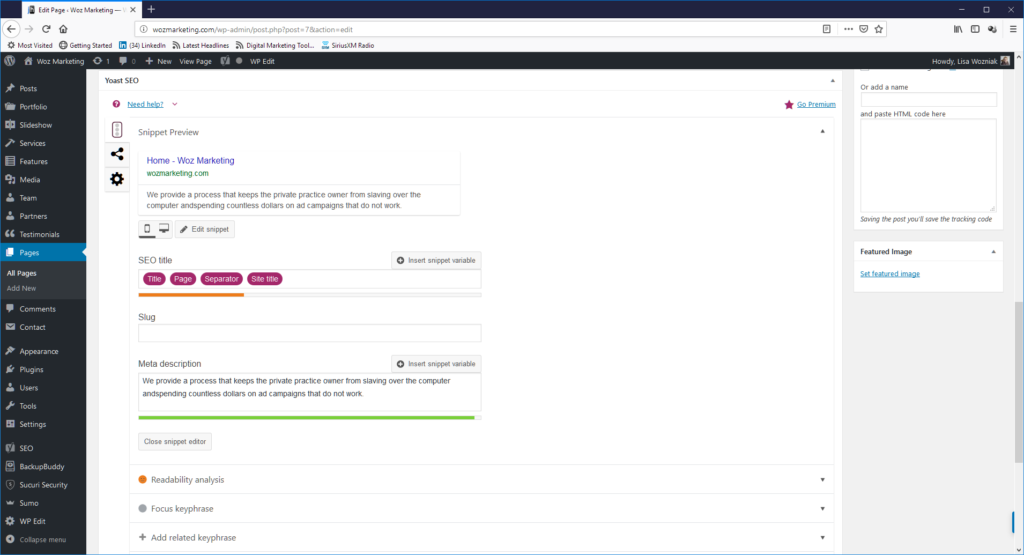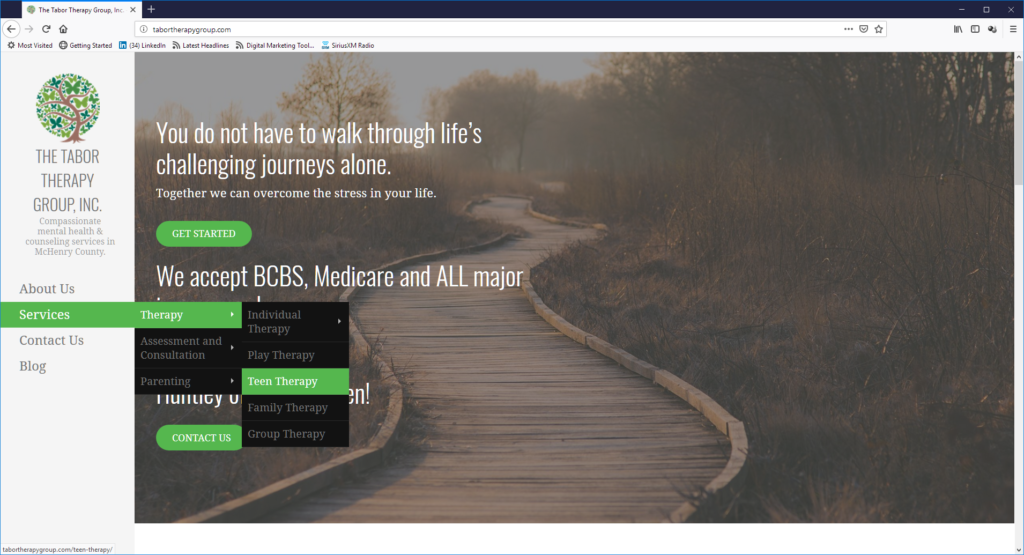Are you longing for Google Love?
You’re not alone! For anyone in private practice, the number one question we hear most often is, “How do I get Google to recognize me? How do I get ranked on Google?”
The truth is, getting Google to love you doesn’t have to be the daunting task that so many imagine it to be. At the end of the day, it’s all about relevance.
There are a few things that you can do with your website to impact this relevance. Let’s break them down into smaller more manageable chunks.
Home Page
It’s incredibly important to have a well-crafted home page that is designed to quickly capture the attention of your reader. Let them know that they are in the right place and that you have the answer to their problems. However, there is actually very little that Google does with this information.
That said, two things that you can do in the back tables of your website to remain relevant in Google. For example, fill in your titles and descriptions.
We’ll use Woz Marketing as an example. Let’s look at the image below.
You’ll notice that under the heading of the Home page, there is not much we can do with the title as it is simply that….the home page.
But we can offer a description under the section of Meta Description that talks about what people can expect to find on this page.
That’s about it, there really isn’t much we can do to get Google to love us with the Home page.
Service Pages
Your service pages are the area of your website that talk about the services that you offer to your clients. This would be the areas of your specialty.
If you struggle with the concept of choosing a specialty and not sure why it is necessary. I suggest you read, Want More Money? Narrow Your Small Business Niche.
The key to Google love here, is that you have one page of your website devoted to each of your specialties. That said, I strongly encourage you to drill down the number of your specialties to under 5.
Having too many specialties will result in too many pages on your website which will be overwhelming to your audience and cause them to move on. Less truly is more here.
It’s also a good idea to have each of these pages appear as a sub-page rather than its own tab along the toolbar.
The image below shows how a group therapy practice drilled down their specialties into sub-pages on their site. You’ll notice that their overall site only has four tabs. This is much easier and cleaner for the reader.
Each page discussing your specialty should only have between 400-600 words and be written from a place of emotion.
Talk about how you’re able to help them, and paint a picture of what their life is like with the problem and what their life will look like as a result of your helping them solve the problem.
Be careful about spending too much time talking about the modalities that you use with your clients.
The average person seeking your services doesn’t understand this terminology and will often be confused and move on if it is too wordy. They respond best with emotional triggers.
If your practice is focused strictly on local business, be sure to call that out for Google on your specialty pages.
For example, say your coaching practice specializes in helping women in leadership with employee development in the Los Angeles area. Talk about that on your specialty page. Google will pick up on all of these things and reward you with ranking love because of it.
Blog Page
Each time you write a blog, Google views this as a page on your website. The more pages you have the stronger your relevance. The stronger your relevance, the higher you crawl through their ranking system.
You need to write about the subjects you specialize in.
Think of it in terms of what your future clients will be typing in to their search engines to find someone just like you.
For example, say you have a nutrition practice that specializes in brain health. A relevant blog article for Google purposes would be talking about cognitive decline and the role of nutrition. These are items that can not only be talking about the pain points of your potential clients but be directly traced back to the work that you do with them as well.
Google loves this and will reward you for it.
When coming up with topics for your blog, try typing in to Google some of the pain points of your potential clients and then skipping down to the Suggestions By Google section. This will give you plenty of ideas for blogs using the keywords that Google recognizes.
We’d love to hear how you’re impacting your SEO rankings through your website. Leave us some comments below and share the Google love!

